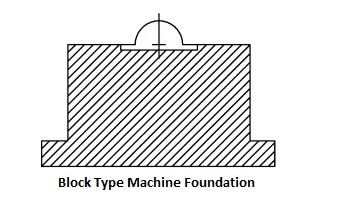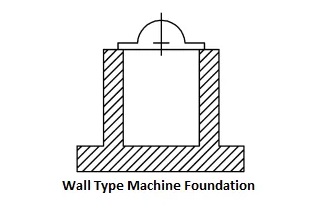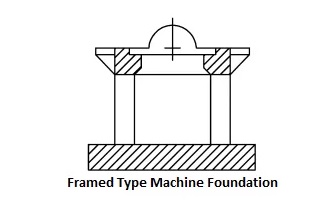A machine foundation is used to transmit the dynamic and static load to the soil due to the weight of the rotating vibrating machine. The dynamic load is little compared to the static weight of the machine. It basically comprises a mass of concrete.

In a Machine Foundation, the dynamic load is applied monotonously over an exceptionally long timeframe yet its extent is little and subsequently, the dirt conduct is basically flexible, or probably twisting will increment with each pattern of stacking and may turn into unsatisfactory.
The machine foundation should be designed in such a way that it can restrict the amplitude displacement and not disturb the people who work near the machine.
In case, the design of machine foundations does not fulfill the acceptable value of the dynamic response the stabilization of soil under the foundation should be used to diminish the amplitude of displacement.
Table of Contents
Types Of Machine Foundation:
- Block Type Machine Foundation
- Box Or Caisson Type Machine Foundation
- Wall Type
- Framed Type
- Non-Rigid or Flexible Type
Each type of machine foundation has been described.
1. Block Type Machine Foundation
this type of foundation comprises of pedestal resting. Pedestals resting on a footing have huge mass and very small natural frequency.

2. Caisson Type Machine Foundation
Caisson type machine foundation comprises of hollow concrete block. The mass of this type of foundation is less compared to the block foundation due to the hollow concrete blocks. It provides enhanced natural frequency.

3. Wall Type Machine Foundation
Wall type machine foundation comprises of pair of walls. There is a slab resting on the wall to close from the top.

4. Framed Type Machine Foundation
The framed type machine foundation comprises the column and a horizontal frame on the top of the column.

